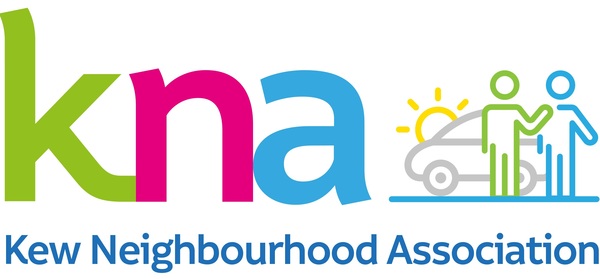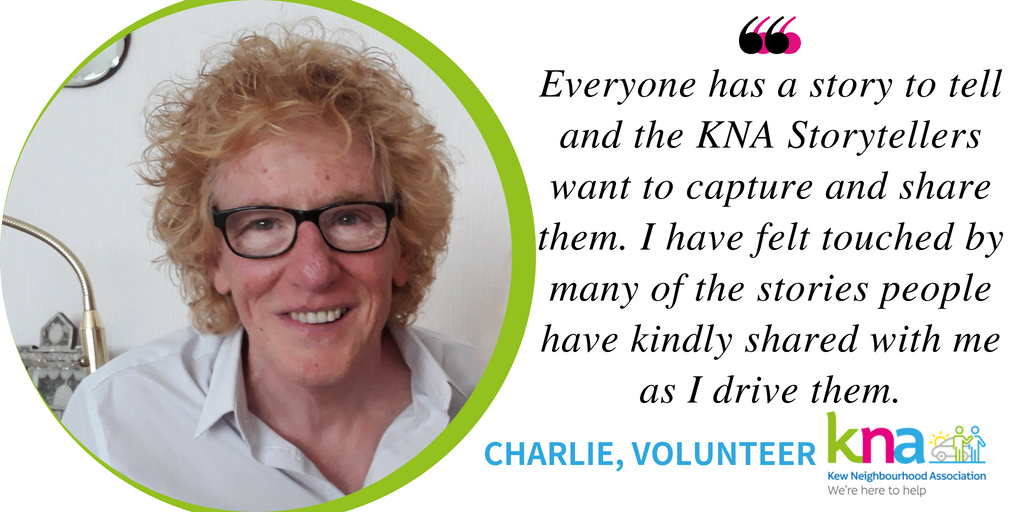Kew neighbours and British reserve
When you came to Kew, what did you expect? A handy commuting base? Good schools? Low crime? Pleasant place to relax at weekends?
That's what most buy into (at some expense!).
With typical British reserve, we get on with living independently, in nuclear families, pursuing activities defined by the timetables of work, education, housework, holidays, etc., carried along by friendships often made around babysitting, church, school, cycling / football / running / tennis and other shared interests.
Since we moved here in 1986, life outside work has centred on bringing up our daughter (and then dog walks), also running with friends and enjoying the company of like-minded folk.
Later, independent living takes on a different meaning, as children leave home and retirement removes daily routine. Of course, it's liberating and uplifting to get out more with our wonderful 60+ OysterCards and Senior Railcards, relieved of responsibilities, pursuing hobbies.
But too often, friends have moved away, perhaps to downsize or escape from living under a flightpath. And, gradually or suddenly, infirmity may make it more difficult to get out as you used, whether down to the shop, visiting Kew Gardens or going to church or pub, let alone up to town. You may need help with activities you took for granted, such as shopping, keeping your garden in shape, participating in local cultural events or getting to the dentist/doctor/hospital for (ever more frequent) appointments.
Often traditional reserve makes us reluctant to impose on neighbours - who in turn hesitate to intrude. As a result, we may become isolated at home and want company to keep spirits up.
There are a surprising number of neighbours in this situation, some struggling to make ends meet in capital rich but cash poor Kew.
As a Kew Neighbour's volunteer, I know that neighbours can make an important difference to how you feel – we love to be asked, and feel better for knowing we are helping. All our volunteers and clients are your neighbours, whatever your age or circumstances, and Kew Neighbourhood Association won't be moving away any time soon!
For over ten years I have done voluntary driving, taking neighbours in my car to health appointments at doctors' surgeries or hospitals (near and far!), our local Avenue Club, and sometimes other activities. I am also a Trustee of KNA, helping with its continued development.
Volunteering is its own reward, getting to know the fascinating and unsuspected backstories of neighbours, who so often visibly radiate happiness while you drive them - whether across Richmond Park on the way to their medical appointments, or chatting excitedly about Avenue Club activities such as the choir or ukulele band.
Are you someone who would like support? Or someone who can offer support? Don't be shy, your contribution is valuable, whoever you are. Whether as giver or recipient of help, you can contribute to ensuring Kew remains the best place to live! Volunteering needn’t be a major demand on your time - and you only take on jobs that are convenient for you.
An occasional ½ hour every few weeks is very helpful and surprisingly rewarding.
Written by Andrew Brown, KNA Volunteer.
"I am extraordinarily lucky living in Kew... it is important to give back"
We interviewed alumni volunteer Rea Granleese to mark the ocassion of his 90th birthday about his experiences volunteering for KNA
‘Paying it forward’ for KNA
I’ve been aware of KNA since the end of the 1980’s first hearing of them through a neighbour of mine, she was 102 when she died, and she went to her hairdresser every week with a KNA volunteer. Later on KNA took my mum to her day centre.
When I retired after 34 years working at The Queen’s School, doing various roles where I really enjoyed being with the children, I took a little time out. Then I was looking for something good to do with my time. My daughter said that KNA were asking for volunteers.
I don’t drive, for more than nine years I have met with my companions. We would play cards together. Most recently because of the pandemic our contact has switched to the phone and I am calling new people too.
I feel I am ‘paying it forward’ for KNA for the help they previously gave others in my life.
Janet Morgans, KNA Volunteer

